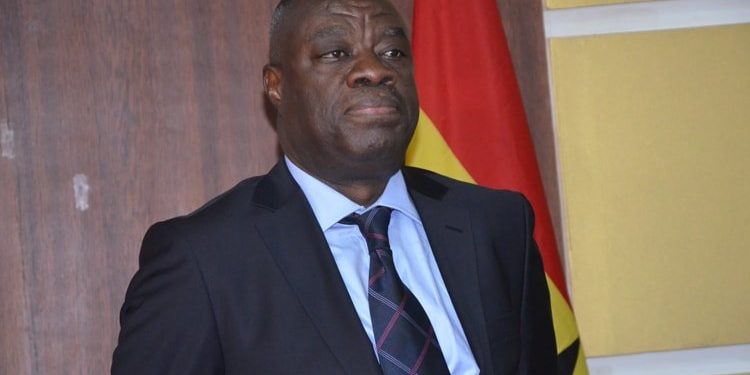Tourism industry suffers from fluctuating fuel prices
Industry players in the tourism sector have disclosed that the sector is facing some challenges due to the frequent fluctuations in fuel prices.
This comes on the back of a recent report by the Institute for Energy Security predicting that fuel prices are likely to hit ¢7 per litre as a result of a 30 pesewas to 40 pesewas per litre increment at the pumps.
According to the President of Tour Operators Union of Ghana, Alisa Osei-Asamoah, there are ongoing discussions with stakeholders to cushion industry players.
She said this after a ceremony to inaugurate the new board of the Chamber for Tourism Industry, Ghana and called on the government to stabilize fuel prices,
“The fuel prices affected us but the fortunate thing is we are negotiating for a reasonable percentage. The recent increases did not really affect us, so we took up the cost but we’re hoping they (government) stabilize it so that it doesn’t affect us,” she said.
Also, speaking after the ceremony, Chief Executive for the Chamber, Emmanuel Treku urged the public to patronise local tourism.
“This is a milestone for the chamber and also the tourism fraternity in Ghana. It is timely that we have an astute board to steer the chamber. COVID-19 has done us a disservice, but it has shown us that it is time we promote local tourism and this is where we need all and sundry to get on board,” he stated.
Public Relations Officer of the Ghana Tourism Authority, Jones Nelson noted that the industry is gradually bouncing back after the impact of the pandemic but more needs to be done to fully revive it.
“Gradually we’re picking up the bits and pieces. In December 2019, Ghana brought a lot of people [tourists] and industry players cashed in. in 2019, we cashed in ¢3 billion but COVID-19 affected us. However, we are picking up,” he said.
Read: FGR rebuts inaccuracies and misrepresentation of facts in recent Bogoso Prestea Mine article
President of BlueCrest College, Dr. Anand Agrawal, disclosed that the school is embarking on projects to promote tourism.
“There are a lot of peculiar strengths of Ghana we need to promote. In promoting tourism further, we have a very strong school called School of Fashion and Design for exchange programmes,” he revealed.
Energy think tank, Institute for Energy Security (IES), has said fuel price increment in January is imminent given the increase in crude price on the international market and depreciation of the cedi.
According to the IES, consumers should remain expectant of a further increase in fuel prices at the pumps – between GHS 0.30 to GHS 0.40 per litre.
The projected increment in fuel price the think tank notes, is to be driven by the 7.42% increase in the price of Brent crude, the 9.46% increase in price of Gasoline, the 8.52% increase in Gasoil price and the 0.3% depreciation of the local currency against the US Dollar.
“The imminent price increases may force some OMCs to sell Gasoline and Gasoil at Gh¢7.00 per litre at the pumps for the first time,” remarked the IES in its assessment of the first pricing-window for January 2022.
Global oil prices after dipping to about 68 dollars per barrel is currently inching towards 85 dollars a barrel, yet analysts are tipping the price to shoot up even further.
Oil prices hit two-months high on Wednesday on tight supply, and there are concerns about a potential hit to demand from the Omicron coronavirus variant.
Federal Reserve Chairman Jerome Powell said on Tuesday, January 12, that the economy of the United States, the world’s biggest oil consumer, should weather the current COVID-19 surge with only “short-lived” impacts and was ready for the start of tighter monetary policy.
Brent crude futures were up 34 cents, or 0.4%, at $84.06 a barrel at 0918 GMT on Wednesday (12 January 2022).
U.S. West Texas Intermediate (WTI) crude futures were up 49 cents, or 0.6%, to US$81.71 a barrel. Both contracts are set for their sixth session of gains out of eight.
The Brent contract is showing growing backwardation with front-month delivery around US$4.20 more expensive than delivery in six months’ time, indicating tight supply currently.
OPEC+ producers continue to hold back more than three million barrels per day in output, while sanctions on Iran pin back its exports.








